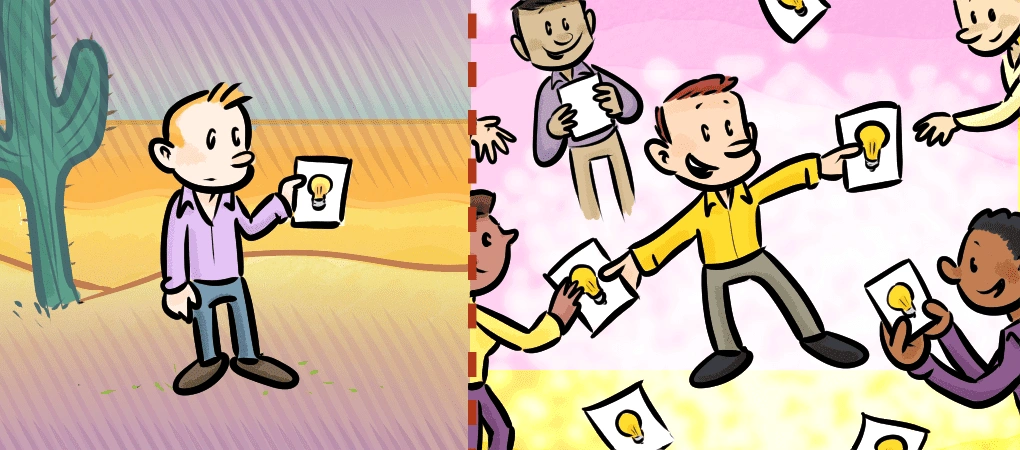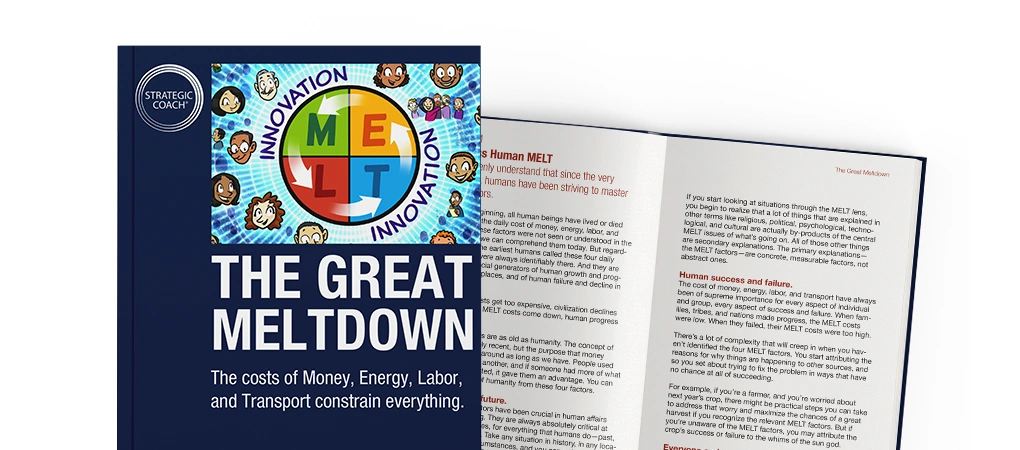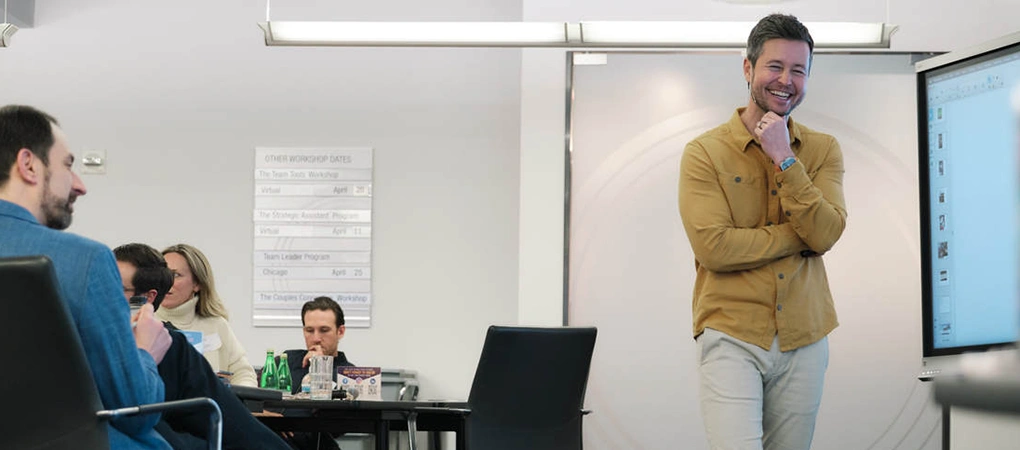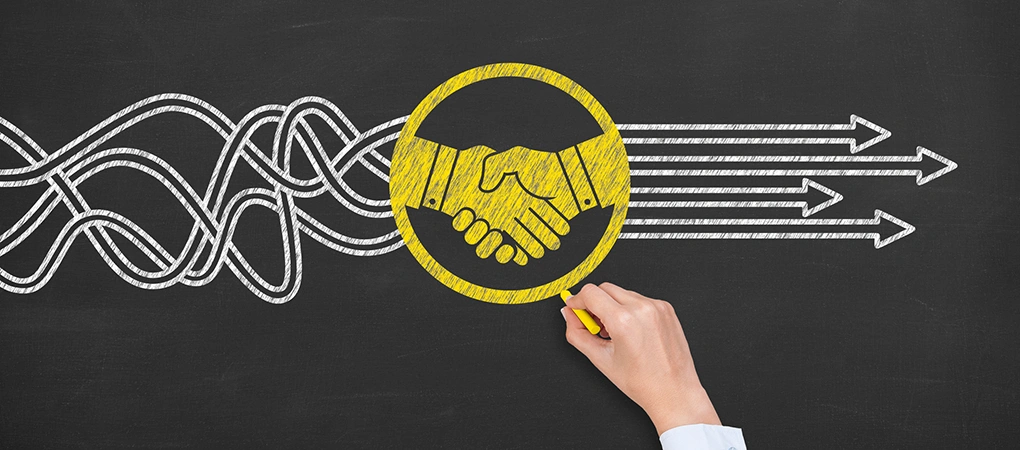Dan Sullivan’s Best Advice: When To Kill A Company
The Strategic Coach Team

Entrepreneurs are ideas people, but what’s important to remember is that not every idea is a good idea. Some of those not-so-good ideas even turn into companies that might enjoy considerable success but then flounder, or others that bleed money from day one. Both reach a point where no one is having fun anymore—not the entrepreneur, their team, the bankers or any other investors involved, and certainly not their customers.
How do you know when to kill a company?
Experience, the best teacher.
In this blog post based on a recent podcast they co-hosted, two veterans of the entrepreneurial trenches draw from their own experiences, both successful and abject failures.
Peter Diamandis, the highly-connected and brilliant serial entrepreneur, and Dan Sullivan, number one coach to top entrepreneurs worldwide, have been there, done that, and have more than the T-shirt to prove it.
Why not learn from the best and possibly avoid reaching the painful point where you have to make one of the most challenging decisions any entrepreneur could face: Do I or do I not walk away from this company? And if I do, how do I know when to kill this company?
Testing, testing, testing … on the right audience.
When you get to the point where you’re giving up on a company, Dan says, “you’ve seen signs that the marketplace has given up on you: They don’t find value anymore in what you’re offering—be it a new idea or maybe even the premise for your entire company.
“Perhaps you put an enormous investment into your idea or company before actually testing it in the marketplace, and that’s probably the number one sin to commit in the first place.
“Basically, you guessed wrong.”
Always testing your new idea before you introduce it to the marketplace is a given. But here’s what a lot of entrepreneurs don’t understand: The only way to know whether your idea will fly is always to test it on those people who will write you a check for it. No other opinion counts—not your spouse’s, your sister-in-law’s, your carpool buddy’s. No one else’s opinion but a check-writer’s.
With failures behind him, this is Dan’s hard-and-fast rule: Test, test early, and test only on check-writers. “I try to get my first check-writer ‘reality check’ as fast as I can with any new idea I have,” he says.
“Even if it’s a diagram on the back of a napkin, I can talk about it to a potential check-writer. I can ask, ‘Would this idea be valuable enough to you that you would actually write me a check for it?’
“That’s when you’ll get the type of feedback that will tell you whether your idea or company is any good,” Dan emphasizes.
Download The Strategic Coach Approach To Overcoming Commoditization, and learn how you can build a business based on creating a unique experience for your clients that no one else can duplicate. Goodbye, competition.
Failures can add up … to something good!
After decades of working with entrepreneurs in every type of industry, Dan knows that entrepreneurs are not complete risk-takers. His best advice is to try to keep your failures smaller and quicker as you go forward, creating a series of failures that build a success.
Peter agrees: “One hundred percent. I talk about the most successful companies in the world being data-driven experimentalists. You’re driven by data, and you’re running experiments, which in the process, involves failing in order to learn—small failures that give you corrections along the way.”
Peter’s Zero Gravity company, based on the science used to train astronauts, is an example of passion and determination, time and energy poured into a company that was thwarted at every turn and looked doomed to fail. Peter made the decision not to give up on it, and its eventual success is truly legendary. As he recounts its story in the podcast, he says he feels all the anxiety even now, over 15 years later.
So, small failures can add up to something good.
But you do have to know when to quit.
How does Dan measure success? He aims to create revenue from day one, and it’s possible in his case because his products are all intellectual products, with very little expense in their creation. His goal is to be in a profitable position within 90 days.
Dan’s new Free Zone Frontier program benefited from very early testing on check-writers, which meant he could tailor the program to fit their feedback and “want” lists.
“I understand what my check-writers are looking for next,” Dan says. “I use their language to tell them about the product because they’ve already given me the language of that next thing in testing. I build it right into my model when I present it to them.”
But when would he quit if he sensed things weren’t working?
Dan tests at the end of a workshop day, measuring the excitement or disappointment level. “After two or three quarters in a row where clients aren’t excited by a workshop concept, if there isn’t some magical transformation I can make, I’ll get rid of that workshop by the end of the first year because by then, I’m demoralized,” he admits.
“The number one person in our company who has to be excited about it is me, and I’d say that’s true for any entrepreneur. If you’re demoralized, everyone around you will pick up on that and mirror that emotion.
“So if you’re losing interest, and it’s become an obligation, a duty, to continue, that’s when to kill a company.
“It’s a decision no entrepreneur wants to face. But if the joy is gone and the financials don’t make sense anymore, your time—an infinite and most precious resource—has to be valued.
“I would also venture to say that most companies that die do so many years after they should have been killed. Knowing when to kill a company is key,” he concludes.







